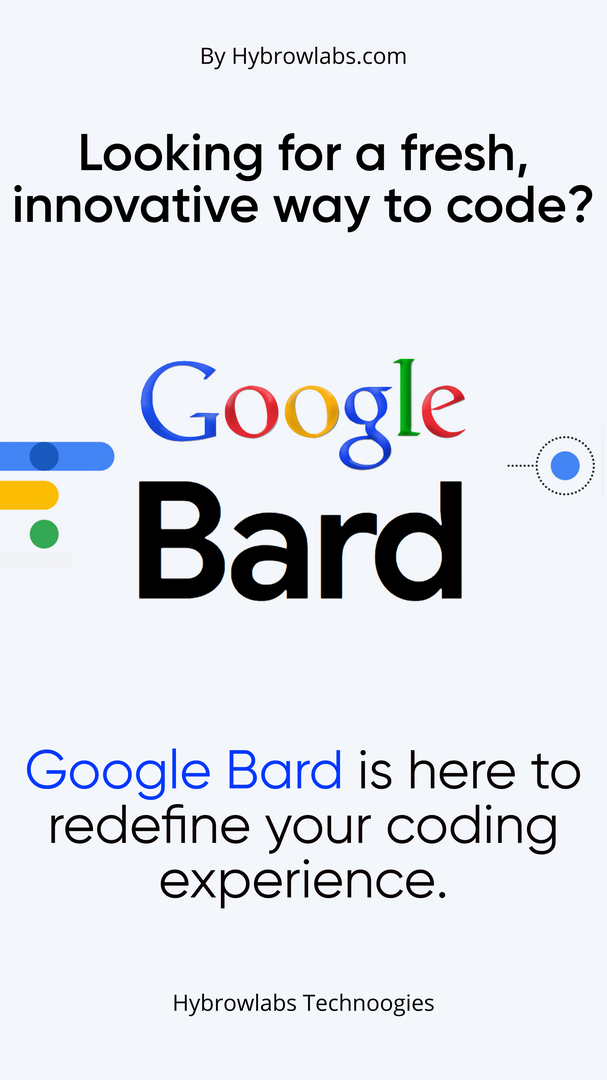
In the fast-paced world of software development, collaboration has become a catalyst for groundbreaking innovations & remarkable achievements. Recognizing the immense potential that lies in the power of collective intelligence, Google has introduced Google Bard, a revolutionary platform that redefines collaboration in coding. Google Bard transcends the traditional boundaries of coding, bringing together developers from around the globe to collaborate seamlessly in real time. With its advanced features & integration capabilities, Google Bard paves the way for a new era of collaborative coding, where teams can work together effortlessly, amplify their creativity & drive transformative solutions.
Get ready to witness the magic unfold as we delve into the captivating realm of Google Bard, where coding genius & collaborative prowess collide to redefine the boundaries of what's possible.
Introducing Google Bard:
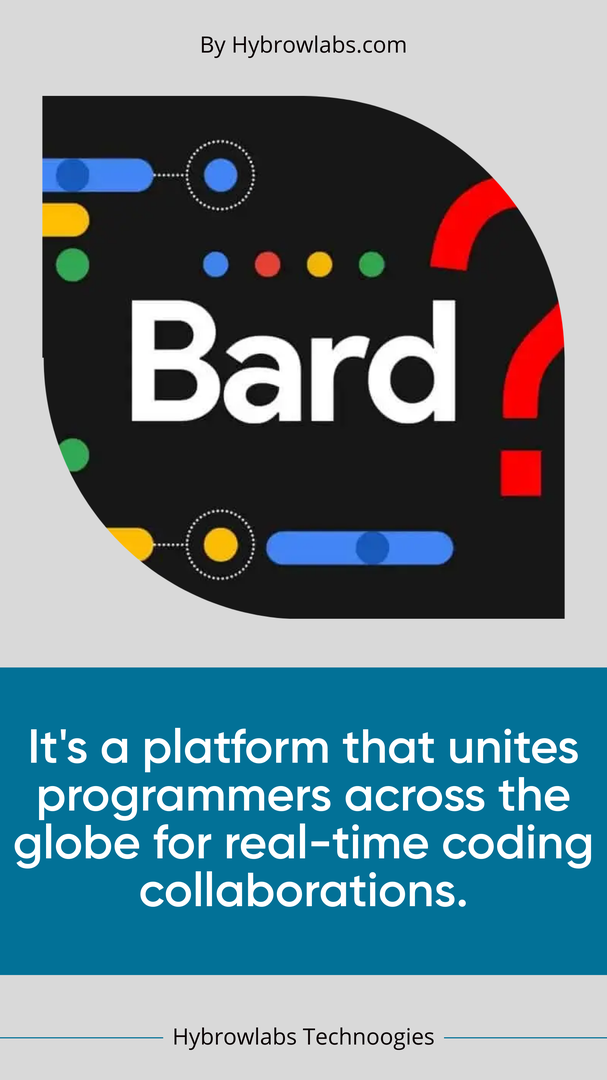
Google Bard is a collaborative coding platform developed by Google that facilitates real-time collaboration among developers. It serves as a virtual workspace where programmers can work together on coding projects regardless of their physical location. Google Bard aims to enhance productivity, foster innovation & streamline the software development process by providing a feature-rich environment for teams to collaborate seamlessly.
Google Bard is more than just a coding platform; it is an ecosystem designed to foster creativity, teamwork & productivity in software development. Inspired by the collaborative nature of artistic performance, Google Bard provides an immersive environment where developers can join forces, share ideas & create remarkable software together.
Google Bard: Evolution & Innovation in Coding:
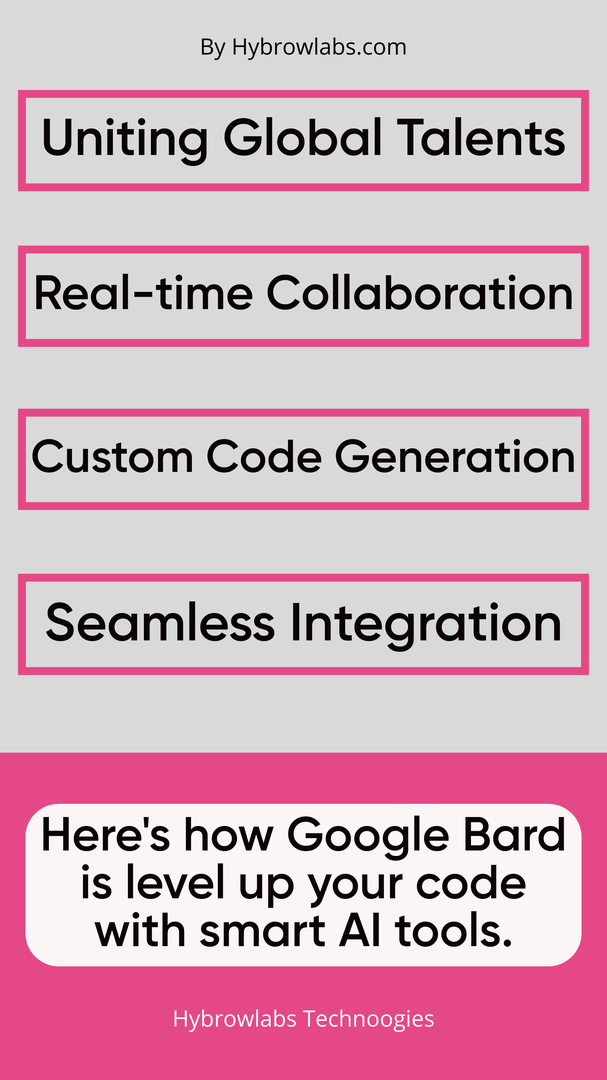
Google Bard has come a long way since its inception, continuously evolving & pushing the boundaries of collaborative coding. Let's trace its development from its initial purpose to its recent coding capabilities, showcasing how it has become a powerhouse in the realm of software development.
1. Uniting Global Talents:
Google Bard serves as a hub that unites developers from around the globe, breaking down barriers of distance & time zones. It empowers teams to collaborate effortlessly, bringing together diverse perspectives & expertise. Developers in different corners of the world can work harmoniously on the same project, tapping into a wealth of knowledge & experiences. Google Bard transforms collaboration into a borderless endeavor, fueling creativity & fostering a global community of programmers.
2. Real-time Collaboration:
With Google Bard, real-time collaboration becomes a seamless reality. Developers can code together, seeing each other's changes unfold instantaneously. Whether it's debugging, code review, or brainstorming, Google Bard facilitates synchronized teamwork, accelerating development cycles. Real-time collaboration allows for immediate feedback, enhances communication & cultivates a vibrant ecosystem of collaborative problem-solving.
3. Intelligent Code Assistance:
Google Bard harnesses the power of advanced technologies such as artificial intelligence & machine learning to provide intelligent code assistance. This feature goes beyond auto-completion & error detection, understanding the developer's intent & offering contextually relevant suggestions. It empowers developers to write code more efficiently & with greater precision, while also promoting best practices & code optimization. Google Bard becomes an invaluable companion, augmenting developers' skills & propelling them toward excellence.
4. Custom Code Generation:
A breakthrough feature of Google Bard is its ability to generate custom code tailored to specific project requirements. By leveraging advanced algorithms & analyzing project context, Google Bard can automatically produce code snippets that fit seamlessly into the existing codebase. This breakthrough enables developers to expedite development, automate repetitive tasks & focus on solving higher-level challenges. Google Bard's custom code generation opens up new possibilities & transforms the way developers approach software creation.
5. Seamless Integration with Collaborative Tools:
Google Bard integrates seamlessly with an array of collaborative tools & platforms, enabling a smooth workflow. Whether it's integrating with version control systems like Git, project management tools, or popular development frameworks, Google Bard becomes the central stage where developers orchestrate their collaborative symphony. The platform bridges the gap between various tools, streamlining the development process & enhancing productivity.
How Bard can now code & put that code in Colab for you:
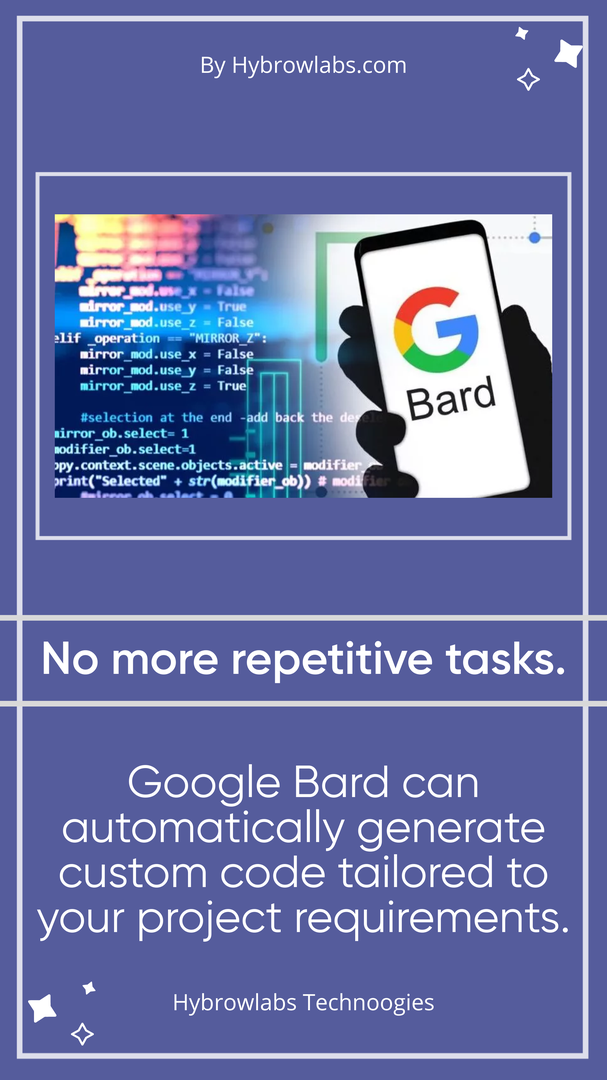
Google Bard has evolved to offer seamless integration with Colab, enabling users to generate code within Bard & easily transfer it to a Colab notebook for further experimentation & execution. Let's explore how this integration works with the help of examples.
1. Code Generation in Bard:
Let's say you are working on a machine learning project in Google Bard & need to generate code for building a convolutional neural network (CNN). You can utilize Bard's code generation capabilities to automatically generate the CNN architecture code snippet:
# Generated code in Bardfrom tensorflow.keras import layers, modelsmodel = models.Sequential()model.add(layers.Conv2D(32, (3, 3), activation='relu', input_shape=(32, 32, 3)))model.add(layers.MaxPooling2D((2, 2)))model.add(layers.Flatten())model.add(layers.Dense(10, activation='softmax'))
Here, Bard generates the code snippet based on the specified requirements, such as the number of convolutional layers, activation functions & input shape. This generated code provides a ready-to-use implementation of the CNN architecture.
2. Transferring Code to Colab:
Once you have the desired code generated in Bard, you can effortlessly transfer it to a Colab notebook for further utilization. Bard offers a seamless workflow to export the code to Colab.
In Bard, you can use the "Export to Colab" feature, which packages the generated code and prepares it for transfer to Colab. This feature ensures a smooth transition between the two platforms.
# Exported code from Bard to Colab!pip install tensorflow# ... (other required imports and data preprocessing)model = models.Sequential()model.add(layers.Conv2D(32, (3, 3), activation='relu', input_shape=(32, 32, 3)))model.add(layers.MaxPooling2D((2, 2)))model.add(layers.Flatten())model.add(layers.Dense(10, activation='softmax'))# ... (training and evaluation code)
The exported code includes any necessary package installations, imports & the generated model architecture. Once transferred to Colab, you can continue working on the code, training the model & evaluating its performance using Colab's computing resources.
This integration between Bard and Colab streamlines the development process by combining Bard's code generation capabilities with Colab's powerful execution environment. It allows developers to quickly generate code in Bard & seamlessly transfer it to Colab for further exploration, training & analysis without any manual effort.
By leveraging this integration, developers can efficiently prototype, experiment & refine their code and models, ultimately accelerating the development & research process.
Example of how google bard can generate custom codes:

Let's say you are working on a web development project & need to create a login functionality. You can utilize Google Bard to generate custom code for the login system based on your specific requirements.
1. Input:
You specify the desired features for the login system, such as username & password validation, session management & authentication with a database.
2. Code Generation:
Using advanced algorithms & machine learning models, Google Bard analyzes your requirements & generates custom code snippets that fulfill the specified features. Here's an example of the generated code:
# Generated code in Google Bardfrom flask import Flask, request, sessionimport mysql.connectorapp = Flask(__name__)app.secret_key = "your_secret_key"db = mysql.connector.connect(host="localhost",user="your_username",password="your_password",database="your_database")@app.route("/login", methods=["POST"])def login():username = request.form["username"]password = request.form["password"]cursor = db.cursor()cursor.execute("SELECT * FROM users WHERE username = %s AND password = %s", (username, password))user = cursor.fetchone()if user:session["username"] = usernamereturn "Login successful"else:return "Invalid credentials"@app.route("/logout")def logout():session.pop("username", None)return "Logged out"if __name__ == "__main__":app.run()
In this example, Google Bard generates code that utilizes the Flask framework for creating a web application. It includes routes for handling login & logout functionality, connecting to a MySQL database for user authentication & managing user sessions.
The generated code is tailored to your specified requirements, ensuring that it aligns with the features you need for the login system. It saves you time & effort by automating the initial setup & providing a foundation for further customization & refinement.
Conclusion
Google Bard, despite its powerful features as a collaborative coding platform, comes with certain limitations developers should be aware of. These include its reliance on internet connectivity, which can pose challenges in areas with unstable internet. A learning curve for new users may be apparent, requiring time and resources for adequate familiarization. There may also be potential customization constraints, limiting how much the platform can be tailored to individual needs.
Furthermore, Google Bard has limited language support and integration limitations with external tools, which might hinder seamless workflow in certain development environments. Developers should also be aware of the considerations for security and privacy when using the platform.
Lastly, while Google Bard's potential reach and impact on a global scale cannot be denied, it may not be available or accessible to developers in all parts of the world. For alternatives or to mitigate these limitations, developers might consider services like Hybrowlabs Development Services.
FAQ-
1. What is Google Bard?
Google Bard is a collaborative coding platform developed by Google that allows developers to work together in real-time on coding projects, promoting efficient teamwork & innovation.
2. Can Google Bard generate custom code?
Yes, Google Bard has the ability to generate custom code snippets based on project requirements. It utilizes advanced algorithms & machine learning models to automate repetitive coding tasks & provide tailored solutions.
3. What programming languages does Google Bard support?
Google Bard supports a range of programming languages, including popular ones like Python, JavaScript & Java. However, the availability of support for specific languages may vary.
4. Can Google Bard integrate with other tools and services?
Yes, Google Bard integrates with various collaborative tools, version control systems, project management platforms & development frameworks. This allows for a seamless workflow & integration with existing development ecosystems.
5. Is Google Bard accessible worldwide?
While Google Bard is a powerful collaborative coding platform, its availability & accessibility may be limited in certain regions of the world. The platform's reach may vary based on regional restrictions, internet connectivity & other factors.



9c59a9.png)


a3dc85.jpg)

.jpg)
fd8f11.png)
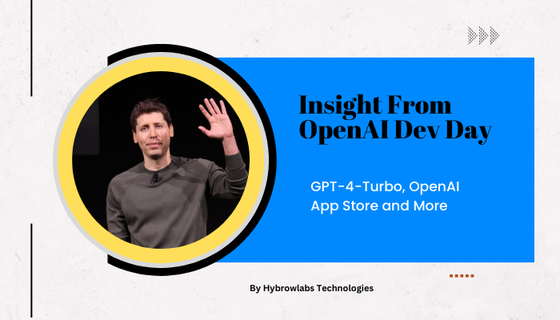
.jpg)
.jpg)